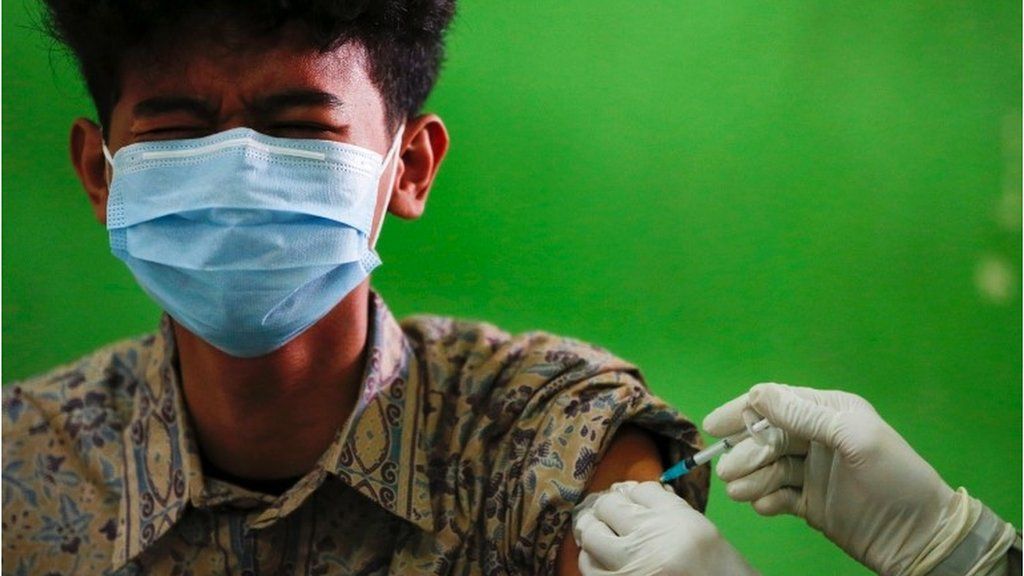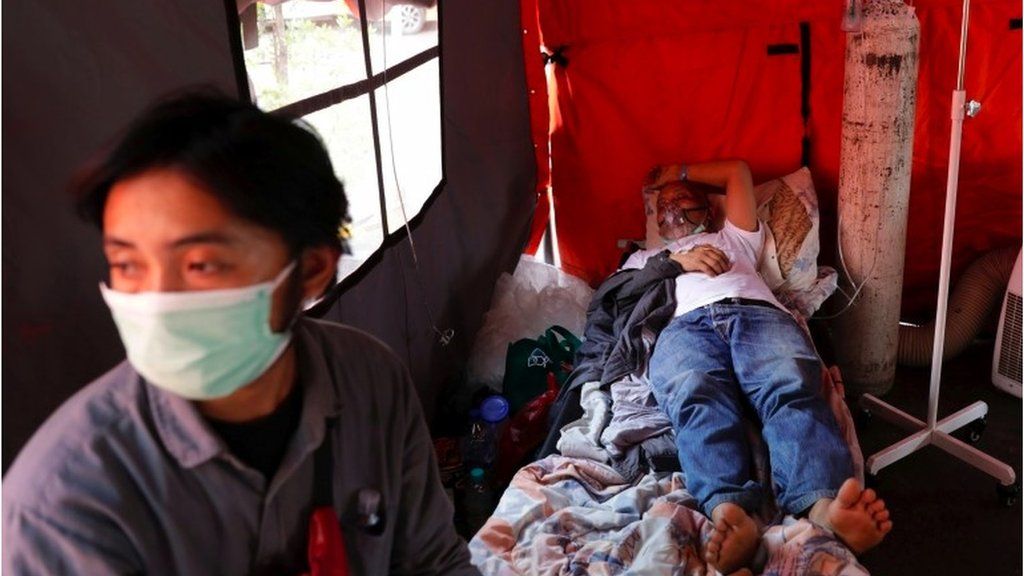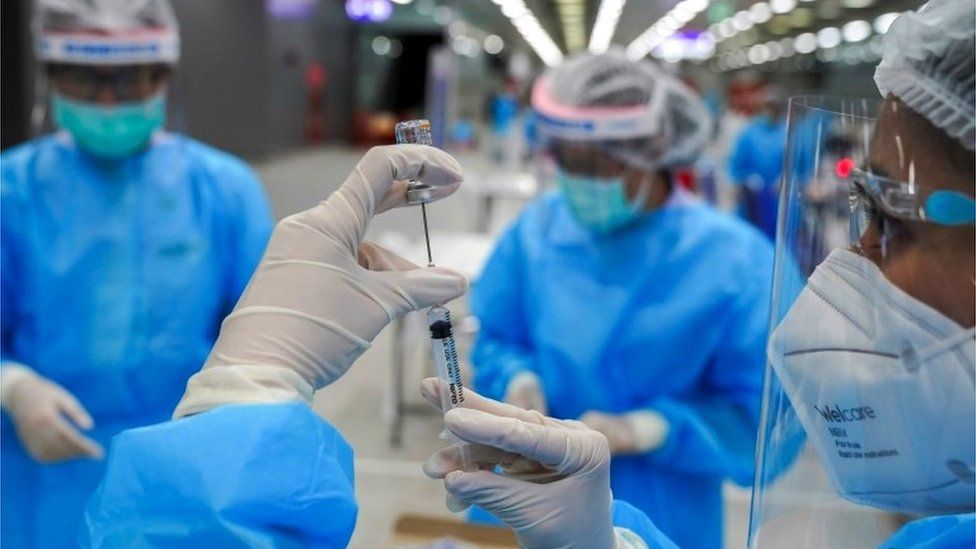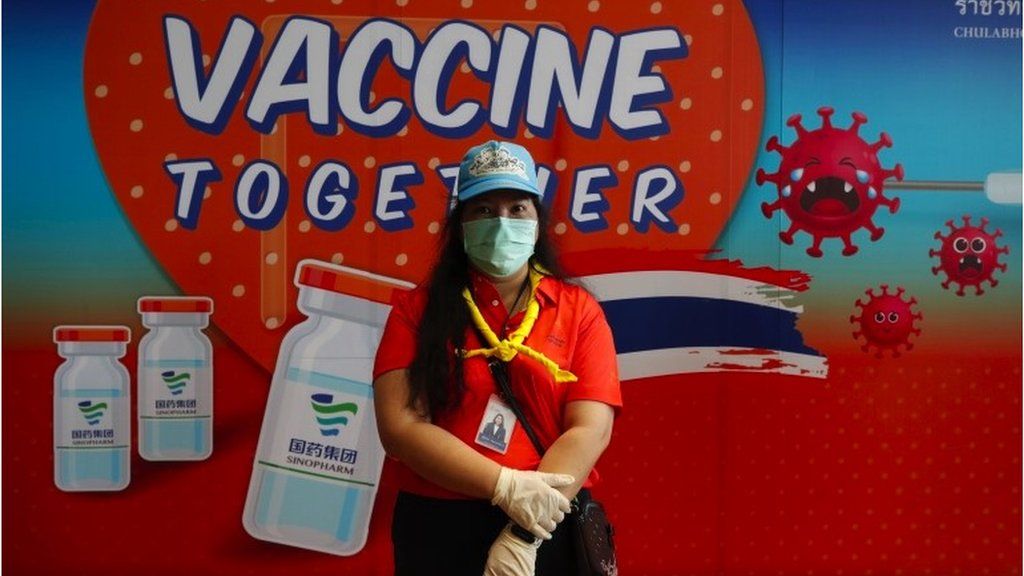Many governments that once relied on Chinese shots are now ordering or seeking donations of mRNA vaccines instead. PHOTO: AFP
BEIJING (BLOOMBERG) - In the early days of the Covid-19 vaccine rollout, Chinese shots saved countless lives. They kick-started inoculation programmes across Asia, Latin America and the Middle East, while richer countries hoarded scarce mRNA shots from Pfizer and Moderna.
But many governments that once relied on vaccines from Sinovac Biotech or Sinopharm Group are now turning to options from the United States and Europe instead, as concerns mount about Chinese vaccines' efficacy against the Delta strain and the Western stranglehold on mRNA supplies grows looser.
That preference may already be showing up in China's customs data, where exports of human vaccines dropped 21 per cent in August to US$1.96 billion from US$2.48 billion in July, after rising steadily since December 2020.
"Basically people took what they could get" when Covid-19 vaccines first became available, said Nicholas Thomas, an associate professor at the City University of Hong Kong who has edited several books on foreign policy and public health.
"But as this has gone on, general populations - rather than just medical practitioners - have become more educated about the differences," he said. "They have realised that not all vaccines are equal in terms of protection."
This shift played out during Thailand's deadly outbreak earlier this year. As cases surged and South-east Asia emerged as the new epicentre of the pandemic, the nation desperately tried to purchase vaccines. Only one supplier came through in time: China's Sinovac.
The shots allowed the country of 70 million to begin its inoculation campaign earlier than hoped, but Thailand soon confronted a challenge now faced by lawmakers across the developing world.
The efficacy of China's inactivated vaccines ranges from about 50 per cent to 80 per cent in clinical trials. But they are less potent than mRNA vaccines and questions are mounting about their effectiveness against the highly transmissible Delta variant.
As a result, the Thai government became the first in the world to offer an AstraZeneca shot to people who had already received a jab or even two of Sinovac. While it is not an mRNA, Thai studies showed the Cambridge, UK-based company's viral vector vaccine is potent as a booster to the Chinese shot, and that Pfizer's dose was found to be even more effective.
But many Thais soon expressed a strong preference for Western shots - even protesting to demand them - and the country's opposition began lambasting the government for its reliance on China. Thailand halted orders of Sinovac and began buying more Western vaccines.
I'm not anti-Sinovac," said Chaowat Sittisak, a 29-year-old teacher in northern Thailand who got a first dose of Sinovac but ordered a second Moderna shot from a private hospital. "If the world only had one vaccine and it's Sinovac, I'd get it. But we have so many other choices. And I want whatever is best."
Many governments that once relied on Chinese shots are now ordering or seeking donations of mRNA vaccines instead. The swing away from China is likely to accelerate as US President Joe Biden promises to donate 1.1 billion mRNA shots, Europe pledges hundreds of millions of vaccines and India prepares to once again export AstraZeneca vaccines after curtailing shipments following its deadly second wave.
In addition to availability and efficacy, freedom of movement may also be motivating the shift: Recipients of Chinese vaccines cannot travel to some locations.
Vaccine exports
In a written reply to Bloomberg, Sinovac said its CoronaVac shot has been effective at preventing hospitalisation, intensive care admissions and deaths throughout the pandemic.
A spokesperson said some countries first rolled out Sinovac to the elderly, who are more likely to be hospitalised with Covid-19, while younger populations received different vaccines later, "and this should be factored in the evaluation of CoronaVac's effectiveness".
Many countries, including Thailand, have "purchased vaccines from multiple suppliers in order to maximise the number of doses available for their population," the company said.
As things stand, the list of places shifting away from Chinese vaccines - or augmenting them with Western boosters - includes Turkey and the United Arab Emirates. In China's own territory of Hong Kong, which has long offered residents a choice between BioNTech and Sinovac, health officials are now testing whether the Chinese shot will perform better when paired with a western booster.
While Sinovac allowed Thailand to start its rollout earlier than planned, the 6 million doses arriving in October will be the last shipment. In 2022, at least three quarters of the government's orders will also come from Astra and Pfizer.
Moves like Thailand's represent a blow to China's vaccine diplomacy ambitions. Nevertheless, governments face a tricky balance between wanting to protect the public and maintaining good relations with China.
The Thai Health Ministry has been careful to say that while it has no plans to order more Sinovac, it is not suggesting the shots are not effective. Chinese firms have exported some 884 million doses of its homegrown vaccines via mostly bilateral deals with places like Brazil and Indonesia.
This week, Chile started giving Sinovac shots to children as young as six, a strong endorsement of a shot that's formed the backbone of their rollout.
And there are still many parts of the world drastically short of vaccines. Some African nations, for instance, have barely started their inoculation drives after struggling to procure shots.
Cote d'Ivoire, Burkina Faso and Kenya are all rolling out Chinese vacciness, and Beijing is a key supplier to the World Health Organisation-backed Covax facility aimed at getting vaccines to the developing world. President Xi Jinping has pledged to export 2 billion doses this year, matching commitments by Group of Seven nations.
Various studies conducted around the world have shown the jabs to be effective at preventing serious illness and death. Yet China's pharmaceutical firms - which were initially less forthcoming than western companies in releasing clinical trial data - have not released similarly conclusive studies that inactivated vaccines are effective against the Delta.
Over the coming year, policymakers may well continue turning away from the older technology of the inactivated Chinese vaccines, says Benjamin Cowling, a professor of epidemiology and biostatistics at the University of Hong Kong, who published a recent study in the Lancet showing the Pfizer vaccine generated 10 times more antibodies than Sinovac.
"If you've got some vaccines that are more effective than others, and the cost is roughly the same, then you're going to get a better bang for the buck if you choose the more effective vaccines," Cowling said. "But I still think that the supplies are limited, so it may not be as easy as saying, 'We just want to order the Moderna vaccine,' or whatever."
'Better alternatives'
In Thailand, the opposition Move Forward party is now calling on the government to reveal the percentage of people who have only received the Sinovac shots.
"The government already knows that studies and research show inactivated virus vaccines are less effective against virus mutations when compared to mRNA-based vaccines," said Wiroj Lakkhanaadisorn, an opposition lawmaker and a key critic of the government's vaccine policies. "We should know the vaccination rate that excludes all two-dose Sinovac shots because the immunity may not be enough any more. Any regions that are ready can then reopen."
Thailand's health ministry didn't respond to a request for comment.
Chaowat, the teacher, said he felt pressured to take the Sinovac shot because of his job but is hoping to get a Moderna shot in a month or two.
"The government is turning away from Sinovac because they have to push through with their reopening plan and they want to reduce vaccine hesitancy among people who don't want Sinovac," he said. "They're turning to better alternatives."
Source: https://www.straitstimes.com/asia/east-asia/chinas-covid-19-vaccine-push-falters-as-nations-switch-to-mrna-shots
MORE ON THIS TOPIC





